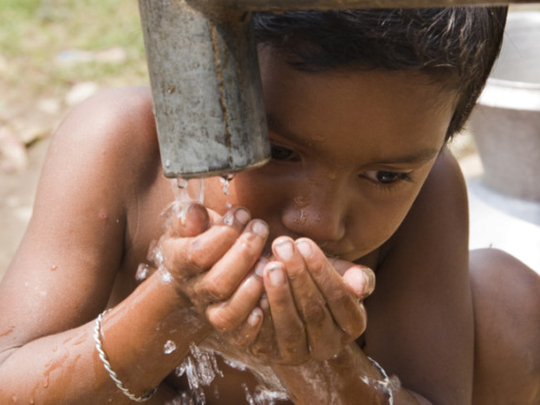
Freshwater is fundamental to life. As the world population grows so does its demand for water. Its use has tripled over the past 50 years according to the United Nations (UN), which is making the following efforts to raise awareness:
World Water Day: The UN has set aside a day to raise awareness and advocate the sustainable management of freshwater resources. Since 1993, March 22 has been celebrated as World Water Day.
Emphasis on water all year long: 2013 is the International Year of Water Cooperation. Launched by Unesco, its objective is to highlight successful examples of water cooperation and explore issues such as water diplomacy and trans boundary water management. “Each year brings new pressures on water,” Secretary-General Ban Ki-moon said in his message for the event. “One-third of the world’s people already live in countries with moderate to high water stress.”
No borders: Did you know that 148 countries share at least one trans boundary river basin? However, 60 per cent of the world’s 276 international river basins lack any type of cooperative management framework. “Water is central to the well-being of people and the planet,” Ki-moon said. “We must work together to protect and carefully manage this fragile, finite resource.”
Clashing over water: “Water scarcity triggers migration, refugees, situations where basic human rights are weakened or threatened,” Paul Egerton, the UN representative of the World Meteorological Organisation (WMO), said during the launch event. He added that fewer resources can trigger conflict and these risks need to be addressed immediately. Violent outbursts over water have broken out recently in Kenya, India and Iran.
Effects of teamwork:Cooperation helps ensure the sustainable and equitable distribution of water while fostering peaceful relations among communities. One example of successful cooperation is that of the Arab Ministerial Water Council. Constituted by Arab states, it uses various mechanisms to manage resources in a water-stressed region. It has defined a water-sharing strategy for 2010-2030.
Helping life: We are currently in the UN’s International Decade for Action Water for Life 2005-2015. Its primary goal is to promote efforts to fulfil international commitments made on water and water-related issues in the United Nations Millennium Development Goals by 2015.
Water footprint: The water footprint of an individual refers to the sum of his/her freshwater use.Professor Arjen Y. Hoekstra, who coined the term, says, “Water problems are often closely tied to the structure of the global economy. Many countries have significantly externalised their water footprint by importing water-intensive goods. This puts pressure on the water resources in the exporting regions, where too often mechanisms for wise water governance and conservation are lacking. Not only governments, but also consumers, businesses and civil society communities can play a role in achieving better management of water resources.”
Did you know that the production of one kilogramme of beef can use up to 15,000 litres of water? Hoekstra’s book The Water Footprint of Modern Consumer Society, out on March 21, talks about how the concept can be used to quantify use and bring it to a sustainable level.
One man’s mission: The co-founder of Water.org, Matt Damon (right) recently stated in a YouTube video, “In protest of this global tragedy, until this issue is resolved, until everybody has access to clean water and sanitation, I will not go to the bathroom”, in a bid to raise awareness for more than 2.5 billion people who don’t have access to toilets.












